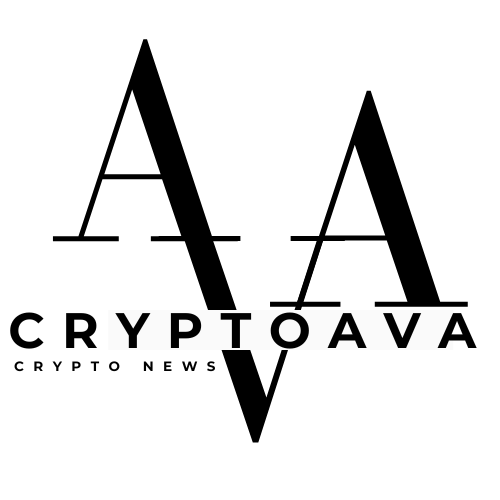
This previous week, one thing extraordinary occurred:
Abnormal traders such as you and me have been provided the prospect to purchase “shares” in a few of the fastest-growing personal corporations on Earth.
I’m speaking about pre-IPO corporations like OpenAI, Anthropic, even SpaceX.
However there’s a catch.
These aren’t precise shares. They’re one thing known as tokens.
What’s happening right here? Is that this a breakthrough — or the subsequent bubble?
Let’s unpack it.
Right here’s What Simply Occurred
Two main funding platforms made headlines final week:
- Robinhood began providing traders “tokenized shares” of OpenAI and SpaceX.
- Republic launched a brand new providing known as “Mirror Tokens” which might be tied to 4 main startups: OpenAI, Anthropic, Epic Video games, and SpaceX.
The pitch? These tokens give common traders publicity to high-flying, pre-IPO corporations — beginning with as little as $50.
How It Truly Works
This isn’t like shopping for shares of Apple or Tesla within the inventory market.
As a substitute, these platforms are utilizing an idea known as tokenization:
They take personal shares, or derivatives tied to the personal shares, and wrap them in a “token” that lives on the blockchain. (A blockchain is a digital ledger that information transactions in a safe, clear method. It’s like a spreadsheet that everybody can see, however nobody can change.)
So that you’re not shopping for precise fairness in OpenAI or SpaceX. As a substitute, you’re shopping for a digital token that’s meant to trace the efficiency of that fairness.
In Robinhood’s case, these tokens can be found solely to non-U.S. clients. In Republic’s case, the token gross sales are counting on SEC guidelines created by the JOBS Act — the laws which have began opening up personal investing to strange traders.
Tokenization is modern. It’s intelligent.
But it surely additionally raises loads of questions.
The Dangers
Listed below are 4 dangers it is advisable perceive about tokenization.
1. You Would possibly Not Personal What You Assume
Sam Altman, the founding father of CEO of OpenAI, stated OpenAI didn’t authorize the sale of those tokens, and reminded the general public that precise fairness transfers require firm approval. In truth, OpenAI publicly disavowed Robinhood’s providing. Translation? These tokens may not be backed by enforceable possession rights.
2. Regulatory Loopholes Are Being Exploited
Robinhood and Republic are threading the needle of U.S. securities regulation by focusing on non-U.S. clients, or by utilizing exemptions discovered within the JOBS Act. These methods could also be authorized — however additionally they sidestep investor protections designed to maintain retail traders secure.
3. Liquidity Isn’t Assured
Regardless of being constructed on the blockchain, these tokens can solely be traded on pre-approved digital “wallets,” on restricted exchanges, or on exchanges which might be deliberate for the long run, however don’t but exist. This can be a far cry from actually liquid markets. In different phrases, don’t make investments any capital right here that you simply may want to your lease, mortgage, or groceries.
4. Lack of Transparency
The mechanics of pricing the tokens aren’t clear. With out this transparency, how will you understand what your tokens are literally value?
Many funding platforms are steering clear. For instance, as Public’s co-CEO Leif Abraham put it, “We determined to not supply tokenized startup shares due to the danger and ambiguity for retail traders.”
Why It Nonetheless Issues
Regardless of the dangers and ambiguity, the demand is apparent — and rising:
- Particular person traders are hungry for entry to elite startups. As we defined final week, strange traders are beginning to perceive that there’s been a significant shift: the most important returns are actually discovered within the personal markets.
- The JOBS Act helps. These new laws allow any investor, no matter earnings or web value, to spend money on a big universe of personal startups. However gaining access to the fastest-growing pre-IPO corporations — like OpenAI or SpaceX — remains to be gated by wealth, entry, and accreditation legal guidelines.
- Tokenization may lastly open up these markets to the plenty.
Even when the primary era of those merchandise is imperfect, the underlying pattern is actual.
It’s probably that regulators, establishments, and tech platforms will finally discover a center floor — one which preserves investor protections whereas succeeding in broadening entry.
The Backside Line
This new wave of tokenized shares is thrilling. It has the potential to interrupt down partitions and democratize entry to pre-IPO giants.
However in the mean time, it’s additionally dangerous, opaque, and largely unregulated.
So whereas we applaud the innovation, we urge warning — particularly should you’re being provided one thing that appears too good to be true.
P.S. At Crowdability, we consider in secure, good entry to non-public startups.
We assist particular person traders get publicity to high-potential personal corporations — with out counting on dangerous tokens or gray-market derivatives.
And sure, that features publicity to corporations like SpaceX.
To be taught how one can make investments safely in offers like SpaceX, click on right here »
Finest Regards,
Founder
Crowdability.com


